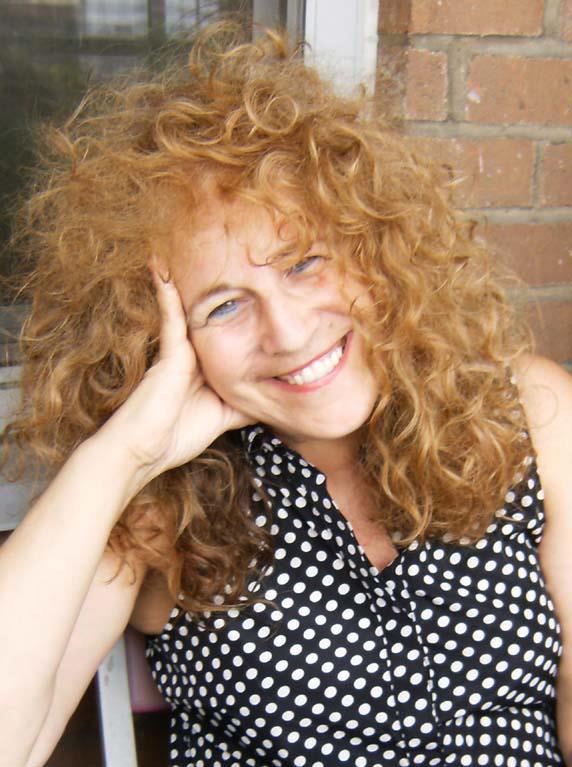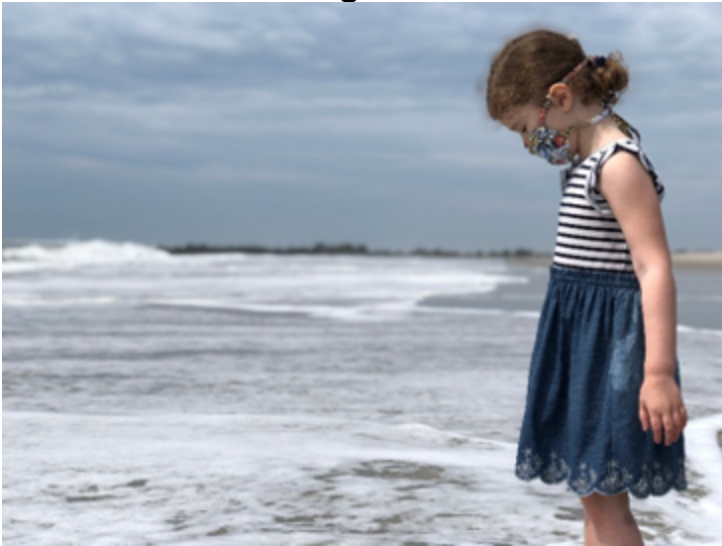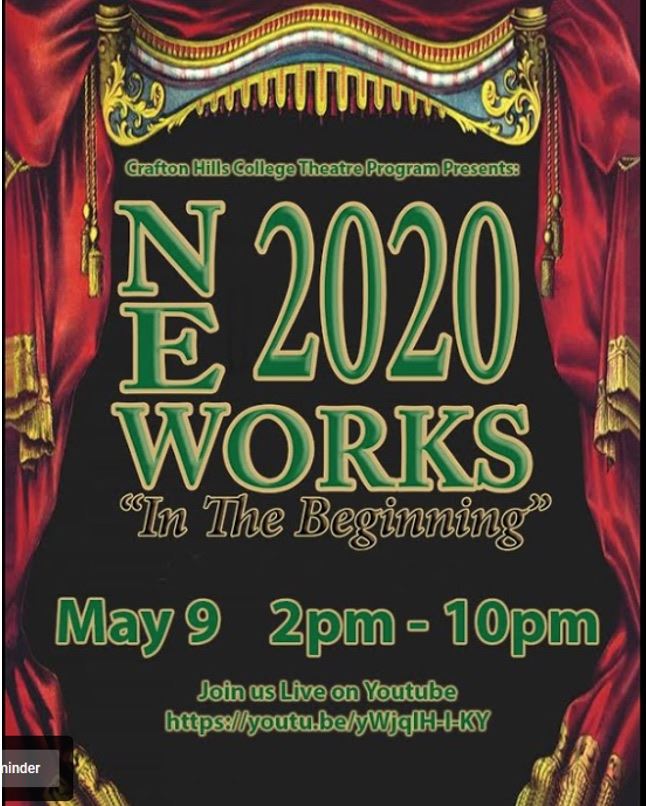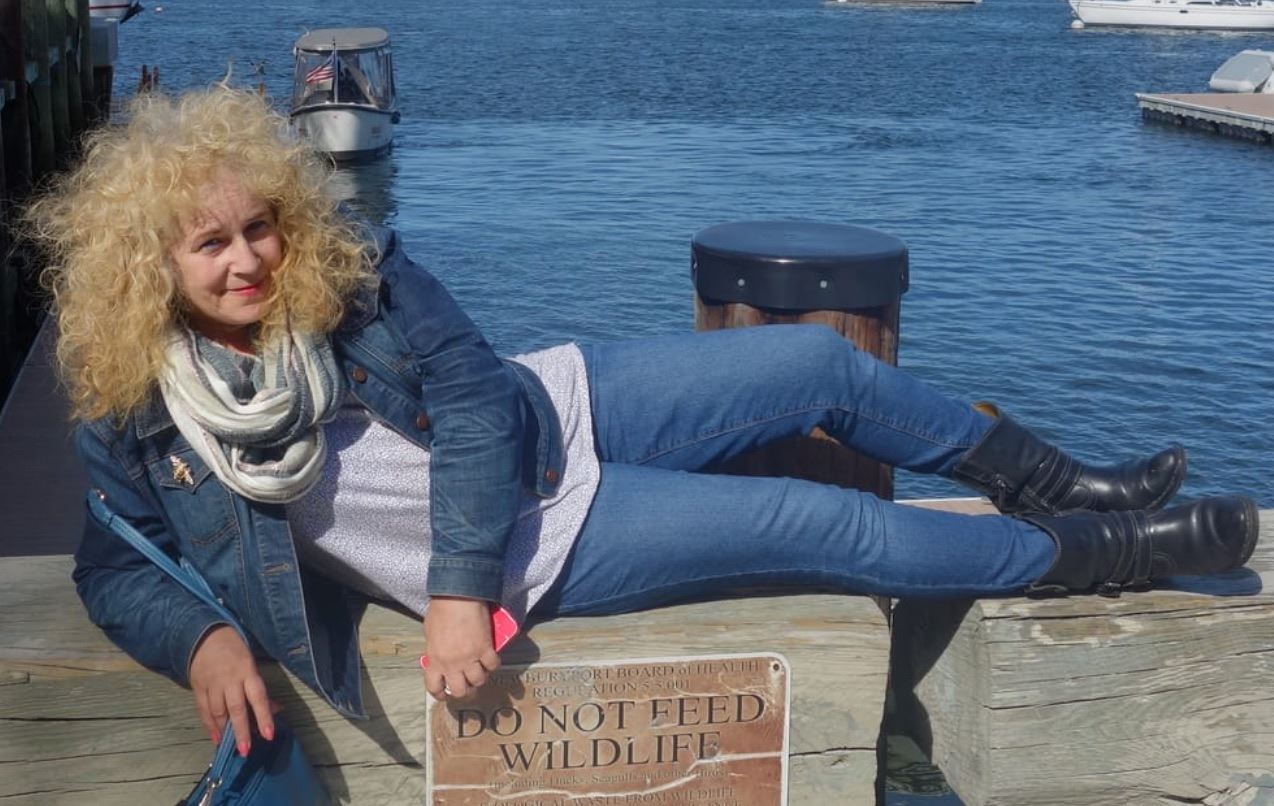by Bara Swain

My anxiety level peaked last week when I couldn’t recall the words “kiwi” and “chili.” I also summoned my Chihuahua, “Let’s take a walk, Melulah,” and asked my granddaughter, “Please pass me the red crayon, Tallinka.” Neither my granddaughter, Tallulah, nor my beloved canine, Melinka, were nonplused. That was reassuring.

Bara's granddaughter
Indeed, the strain of this uncertain and unprecedented time has been stressful and challenging, with coronavirus statistics and news headlines and media taking center stage in our fragile world. No one has been spared the repercussions of today’s pandemic, no one! … including theatre artists and our communities.
Enter Zoom.
The first time that I participated in a Zoom chat was with my immediate family. I swore and cried while I fiddled on my iPhone for entry, my only source for access due to a malfunctioning sound system on an antiquated laptop. (Why, oh, why didn’t I get it repaired last summer?) By the time I navigated the cloud platform, I was in a full-blown tantrum, assuaged by my two year old niece’s acknowledgement, “I like your shirt, Aunt Bara.” (It was an animal print. Possibly a jaguar, a lion or a tiger.)
Since my first Zoom experience, a loaner MacBook Air has enabled me to fully participate as a guest and participant on this modern video communication platform. And I embraced every opportunity that I could! With nothing to bookend my days in solitary, I pounded the keys of my computer with purpose, searched festival listings, submission opportunities and one challenge after the other. (I also made three new best friends: an indoor bicycle, an electric coffee pot, and low dose Ativan.)
What have I learned? What are the pros and cons for a playwright on this cloud platform?

While I continued to acknowledge my accomplishments with a double-order of turkey bacon or a pint of ice-cream, I learned that plays submitted prior to the shutdown that were intended for the stage were not as successful as pieces written specifically for the modern medium. I watched with a critical eye while several of my one-acts were presented via Zoom: My Heart Will Go On (Crafton Hills New Works Festival) and Folded (Geneva Theatre Guild Playwrights Play Reading Series), as well as inhouse Zoom readings of The Wonder of You (Shawnee Playhouse) and a monologue, Joanna Hogg (FAB @ Barrow Group). As a playwright who usually prefers a seat in a middle row of the house during the rehearsal process and performance, I was intimidated by the immediacy of simply “checking in.” In preparation for my first event, I washed and moussed my unruly hair, embraced a new moustache depilatory and smiled with loose dentures, hoping that I looked a decade younger than the image on my half-fare metro card.
These initial experiences illustrated the most difficult adjustment for both playwrights and actors during performance: There is no audience response on the Zoom platform. While talkbacks play a critical role in play development, audible reactions are missing. “Did that particular section work?” “Was that line offensive or amusing or gasp-worthy?” “Where did I lose the audience’s attention?” “Did the ending land? And was it satisfactory?” I exited Zoom rooms utilizing my basic math skills. “If there were 70 participants at the top of the show, and there were 48 at the end of the performance, then 22 audience members left.” What? Hmm. Aghh! I’m a failure.
Setting aside my own insecurities, my first opportunities to write for the Zoom platform were validating and, yes, exciting! When I was selected for Primary Stages’ “Coronalogues,” I was assigned two theatre artists: actress Lizzy Jarret and director Emily Hartford. To set the groundwork, I spent several hours speaking to – let me rephrase – interrogating my actress. In the shadow of the Smokey Mountains, I discovered that the displaced New Yorker liked roles that were “edgy” and, specifically, “tough, headstrong women.” Lizzy was particularly curious about the theme of “being surrounded by death.” Since most of my writing is informed by illness and loss, we were a great match. Next, I asked her questions: Can you do a southern accent or a cartwheel? Will you show me your bedroom, your bathroom, your wallet? Do you wear eyeglasses, PPE, a favorite scarf? Do you have a hobby, sex toys, a pet? What’s your family dynamic, your sister’s name, your place of birth? Finally, I found my hook! – and Seventy-Seven was born, honing in on both of our strengths and accommodating Lizzy’s non-urban location – her uncle’s rural cabin in North Carolina with rustic furniture, picturesque landscaping and an unreliable internet connection. I drafted the script, cut it to three minutes, and handed it over to our director. Once again, I felt like I’d won the lottery. Emily was a generous, enthusiastic and conscientious director, whose goal was to serve the writer’s voice. Kudos to this theatre artist for surpassing my expectations with her creative choices – yes, the location was the bathroom! – and for supporting the story through her imaginative lens.
What I learned: Zoom can be a platform where intimacy and trust can be nurtured. It’s also an excellent way to expand your network of theatre professionals and identify individuals with whom you’d like to work with again.
Part 2 will be posted in the coming weeks... The article is reprinted courtesy of Mara Mills, Artistic Director, Studio Theater in Exile: www.studiotheatreinexile.com

Bara Swain's plays and monologues have been performed across the country in more than 165 venues in 25 states and abroad.
www.BaraSwain.com
![]() at the top of the post
at the top of the post![]() at the top of the post
at the top of the post